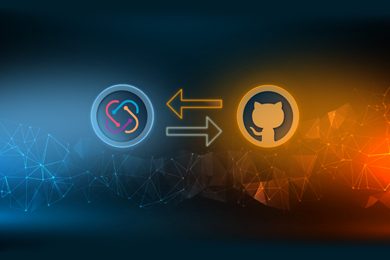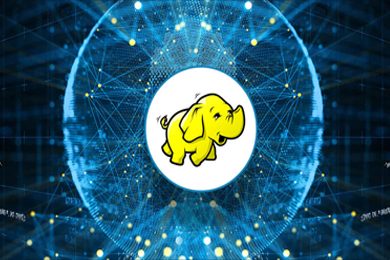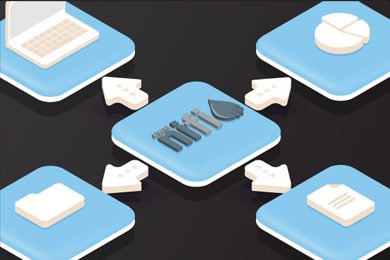This plan includes
- Limited free courses access
- Play & Pause Course Videos
- Video Recorded Lectures
- Learn on Mobile/PC/Tablet
- Quizzes and Real Projects
- Lifetime Course Certificate
- Email & Chat Support
What you'll learn?
- Modernizing Data Warehousing for Advanced Analytics with the powerful methodology of Data Vault 2.0
- Scalable Data Vault 2.0 data warehouse architecture
- Data Vault 2.0 methodology in discussing project planning & execution
- How to Modelling Data Vault 1.0 & 2.0
- The real practical of Data Vault 2.0 with Loading Patterns, ETL Load, HashKey
- How to design Dimensional Model
- Master Data Management from architecture to implementation steps
- Meta data management on each data layers and how to capture metadata
- What is Multi-dimensional Database (OLAP CUBE)
- Update Enterprise Data warehouse (DWH) Platform from IBM, AWS and Data Vault 2.0 technology landscape
- Hands-On Lab with loading source to datavautl, to datamart and to OLAP CUBE by using SQL Server, SSIS, SSAS
Course Overview
Course Overview:
Data Vault Mastery: Modernizing Data Warehousing for Advanced Analytics is an in-depth and comprehensive training program designed to equip participants with the skills and knowledge required to leverage the power of data vault methodologies in modern data warehousing environments. This course focuses on the latest advancements in data vault 2.0, providing learners with a solid foundation in data modeling, implementation, and management techniques for supporting advanced analytics.
You also have a chance to open knowledge on other data aspects such as: Master Data Management (MDM), Metadata Management, Multidimensional Databases and Data Warehouse Platform, etc
Course Objectives:
-
Understand the Fundamentals: Participants will grasp the core concepts of data warehousing, data vault methodologies, and the need for modernization in the era of advanced analytics.
-
Master Data Vault 2.0 Architecture: Learners will explore the architecture of Data Vault 2.0 and understand how it addresses scalability, flexibility, and adaptability for handling dynamic data environments.
-
Learn Data Vault Modeling: The course delves into Data Vault 2.0 modeling techniques, covering the design of hubs, links, and satellites to capture historical data and manage changes.
-
Implement Data Vault Load Patterns: Participants will gain hands-on experience in implementing Data Vault 2.0 load patterns for efficiently loading data from various sources into the data warehouse.
-
Explore Data Vault Physical ETL Load: The course provides insights into the physical implementation of ETL (Extract, Transform, Load) processes for populating the Data Vault.
-
Understand Data Vault 2.0 Hash Key: Learners will learn about the significance of hash keys in Data Vault 2.0 for enhancing data performance and managing data integrity.
-
Discover Dimensional Modeling: Participants will be introduced to dimensional modeling techniques, including star schemas and multi-star schemas, to support reporting and analytics.
-
Master Data Management: The course covers the architecture and development steps of Master Data Management (MDM) to ensure consistent and accurate master data across the organization.
-
Unveil Metadata Management: Learners will explore different metadata types and understand how to capture and manage metadata for effective data governance.
-
Dive into Multidimensional Databases: Participants will gain insights into the world of multidimensional databases and how they cater to complex analytical queries.
-
Explore Data Warehouse Platforms: The course examines the technology landscape of Data Vault 2.0, IBM's Data & Analytics products, and AWS Data & Analytics services
By the end of the "Data Vault Mastery: Modernizing Data Warehousing for Advanced Analytics" course, participants will be well-equipped to design, implement, and manage robust data vault structures to support advanced analytics and derive valuable insights from their data assets.
Pre-requisites
- Basic Knowledge of Data Warehousing: Familiarity with data warehousing concepts, including the purpose and architecture of data warehouses, data modeling, and ETL processes, will be helpful.
- Database Fundamentals: Understanding of fundamental database concepts, such as tables, relationships, and SQL queries, is beneficial.
- Business Intelligence and Analytics: Some knowledge of business intelligence tools and analytics concepts can be advantageous for understanding the application of data vault methodology in advanced analytics.
- Data Modeling: Familiarity with data modeling techniques, such as entity-relationship diagrams and dimensional modeling, can be beneficial for comprehending the concepts taught in the course.
- Database Management Systems: Basic knowledge of database management systems (e.g., Oracle, SQL Server, etc.) is recommended, as data vault implementation may involve working with different databases.
- Data Integration: Awareness of data integration processes and tools, such as ETL (Extract, Transform, Load), is helpful for understanding data vault load patterns.
Target Audience
- Data Warehouse Architects
- Data Engineers
- Business Intelligence (BI) Developers
- Data Analysts
- Data Scientists
- Data Managers and Data Governance Professionals
- IT Managers and Professionals
- Data Modellers
Curriculum 59 Lectures
Section 1 : Introduction
- Lecture 2 :
- Course Outline and Key Learning Outcomes
- Lecture 3 :
- Get the Matterials
Section 2 : Data warehouse Introduction
- Lecture 1 :
- Enterprise data warehouse environment
- Lecture 2 :
- Introduction to Data Vault
- Lecture 3 :
- Data warehouse architecture
Section 3 : Flexible & scalable data warehouse architecture
- Lecture 1 :
- Struggling of data warehouse with changes
- Lecture 2 :
- Data vault 2.0 architecture
- Lecture 3 :
- Business rules application
- Lecture 4 :
- Staging area layer
- Lecture 5 :
- Data warehouse layer
- Lecture 6 :
- Information mart layer
- Lecture 7 :
- Extension of data vault 2.0 architecture >> Metrics Vault
- Lecture 8 :
- Business Vault
- Lecture 9 :
- Operational Vault
Section 4 : The data vault 2.0 methodology
- Lecture 1 :
- Project planning
- Lecture 2 :
- Project planning >> Roles & Duties
- Lecture 3 :
- Project planning >> Communication
- Lecture 4 :
- Project planning >> CMMI maturity model
- Lecture 5 :
- Project planning >> SCRUM
- Lecture 6 :
- Project planning >> Estimation of the project
- Lecture 7 :
- Project execution
- Lecture 8 :
- Project execution >> Implementation steps under agile - Scrum methodology
Section 5 : The data vault modelling
- Lecture 1 :
- The data vault modelling
- Lecture 2 :
- Data vault 1.0 use case, requirement, database diagram & table structure
- Lecture 3 :
- Data vault 1.0 modelling
- Lecture 4 :
- Data vault 1.0 hub, link, satellite, ETL load
- Lecture 5 :
- Data vault 2.0 definition
- Lecture 6 :
- Data vault 2.0 application >> hub application
- Lecture 7 :
- Link application >> Link on Link
- Lecture 8 :
- Link application >> Same as Link
- Lecture 9 :
- Link application >> Hierarchical Link
- Lecture 10 :
- Link application >> Computed Aggregate Link
- Lecture 11 :
- Link application >> Exploration Link
- Lecture 12 :
- Satellite application >> Overloaded Satellites
- Lecture 13 :
- Satellite application >> Multi-active Satellites
- Lecture 14 :
- Satellite application >> Status tracking Satellites
- Lecture 15 :
- Satellite application >> Effectively Satellites
- Lecture 16 :
- Satellite application >> Computed Satellites
- Lecture 17 :
- Advanced data vault modeling >> Point-In-Time tables
- Lecture 18 :
- Advanced data vault modeling >> Bridge tables
- Lecture 19 :
- Data vault 2.0 flexibility
Section 6 : The data vault implementation
- Lecture 1 :
- Data vault 2.0 introduction & use case implementation
- Lecture 2 :
- Data vault 2.0 load patterns >> hub, link, satellite, ETL load
- Lecture 3 :
- Data vault 2.0 load patterns >> hash key & parallel
Section 7 : Dimensional modeling
- Lecture 1 :
- Dimensional modeling: star schemas, multi-dimension schemas, dimension design
Section 8 : Master data management - MDM
- Lecture 1 :
- Master data management: MDM architecture & implementation steps
Section 9 : Meta data management
- Lecture 1 :
- Meta data type
- Lecture 2 :
- Metadata capturing >> Source system
- Lecture 3 :
- Metadata capturing >> Staging
- Lecture 4 :
- Metadata capturing >> Metadata for loading hub entities
- Lecture 5 :
- Metadata capturing >> Metadata for loading link entities
- Lecture 6 :
- Metadata capturing >> Metadata for loading satellite entities on hubs
- Lecture 7 :
- Metadata capturing >> Metadata for loading satellite entities on links
- Lecture 8 :
- Metadata capturing >> Metadata for loading data vault to Datamart
Section 10 : Multi-dimensional database (MOLAP cube)
- Lecture 1 :
- Multi-dimensional database
Section 11 : Data warehouse platform
- Lecture 1 :
- Data warehouse - data lake platform updates: IBM & AWS data platform
Section 12 : Hands-on practices
- Lecture 1 :
- SSIS load: source to Datavault, to Datamart, to OLAP cube
Section 13 : Summary session
- Lecture 1 :
- Data Vault Mastery Modernizing Data Warehousing for Advanced Analytics
Our learners work at
Frequently Asked Questions
How do i access the course after purchase?
It's simple. When you sign up, you'll immediately have unlimited viewing of thousands of expert courses, paths to guide your learning, tools to measure your skills and hands-on resources like exercise files. There’s no limit on what you can learn and you can cancel at any time.Are these video based online self-learning courses?
Yes. All of the courses comes with online video based lectures created by certified instructors. Instructors have crafted these courses with a blend of high quality interactive videos, lectures, quizzes & real world projects to give you an indepth knowledge about the topic.Can i play & pause the course as per my convenience?
Yes absolutely & thats one of the advantage of self-paced courses. You can anytime pause or resume the course & come back & forth from one lecture to another lecture, play the videos mulitple times & so on.How do i contact the instructor for any doubts or questions?
Most of these courses have general questions & answers already covered within the course lectures. However, if you need any further help from the instructor, you can use the inbuilt Chat with Instructor option to send a message to an instructor & they will reply you within 24 hours. You can ask as many questions as you want.Do i need a pc to access the course or can i do it on mobile & tablet as well?
Brilliant question? Isn't it? You can access the courses on any device like PC, Mobile, Tablet & even on a smart tv. For mobile & a tablet you can download the Learnfly android or an iOS app. If mobile app is not available in your country, you can access the course directly by visting our website, its fully mobile friendly.Do i get any certificate for the courses?
Yes. Once you complete any course on our platform along with provided assessments by the instructor, you will be eligble to get certificate of course completion.
For how long can i access my course on the platform?
You require an active subscription to access courses on our platform. If your subscription is active, you can access any course on our platform with no restrictions.Is there any free trial?
Currently, we do not offer any free trial.Can i cancel anytime?
Yes, you can cancel your subscription at any time. Your subscription will auto-renew until you cancel, but why would you want to?
Instructor

9187 Course Views
8 Courses



 Tech & IT
Tech & IT
 Business
Business
 Coding & Developer
Coding & Developer
 Finance & Accounting
Finance & Accounting
 Academics
Academics
 Office Applications
Office Applications
 Art & Design
Art & Design
 Marketing
Marketing
 Health & Wellness
Health & Wellness
 Sounds & Music
Sounds & Music
 Lifestyle
Lifestyle
 Photography
Photography
























